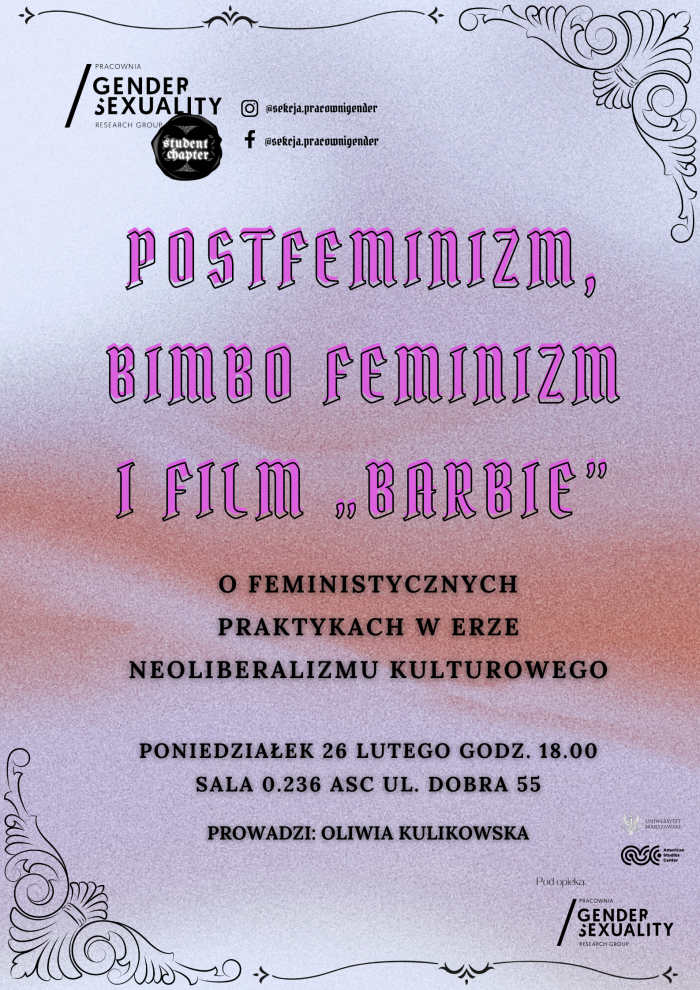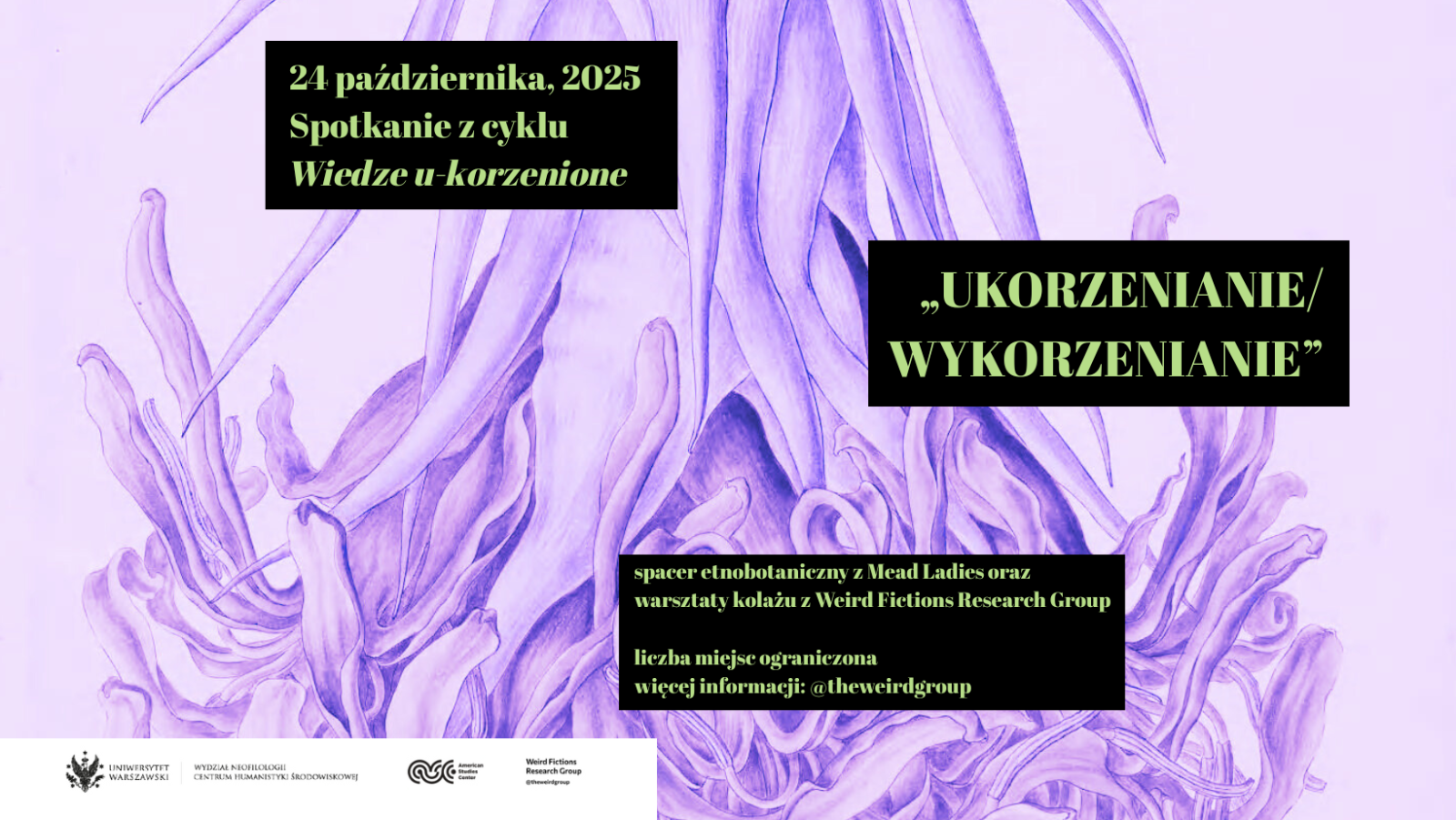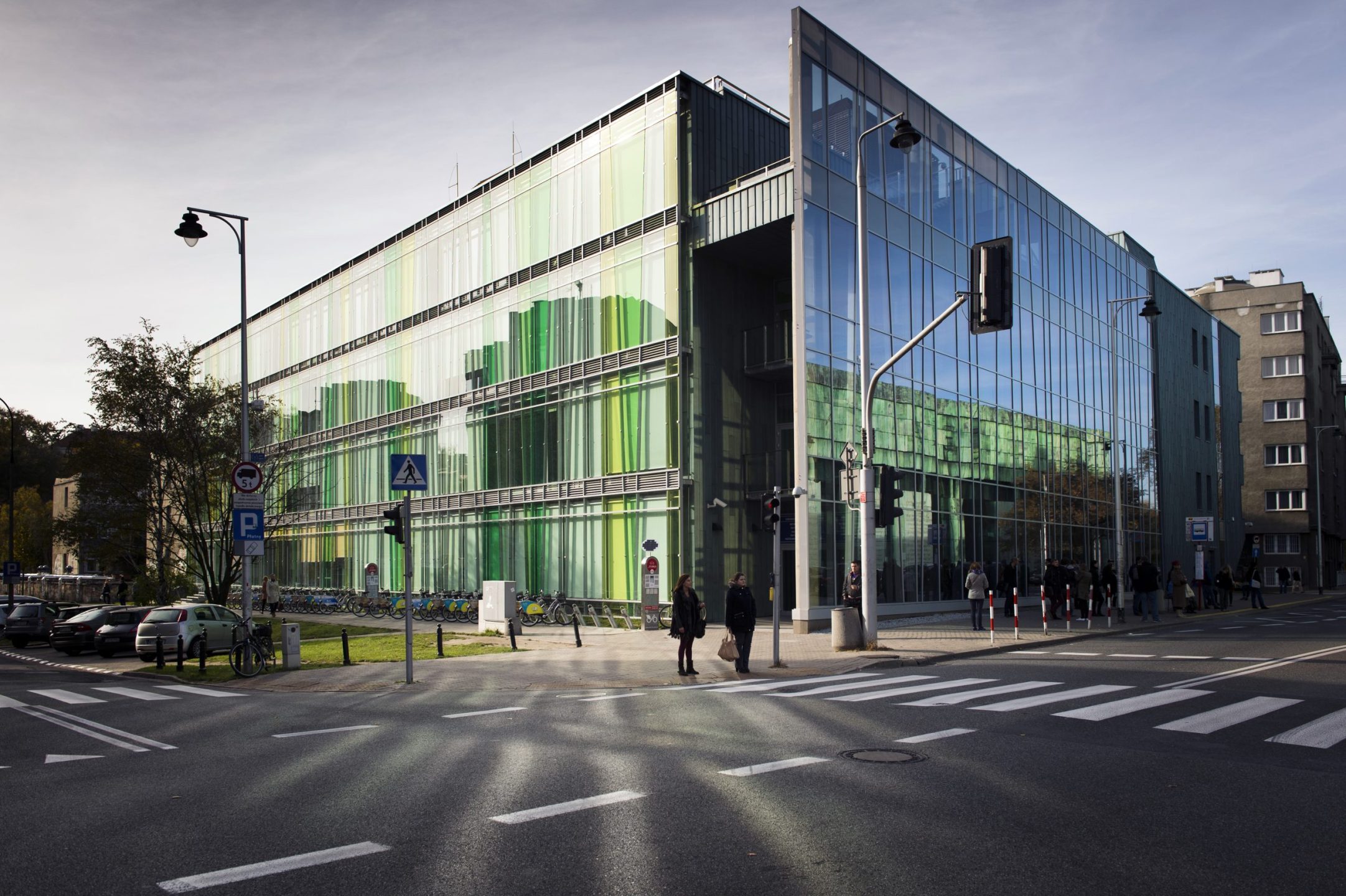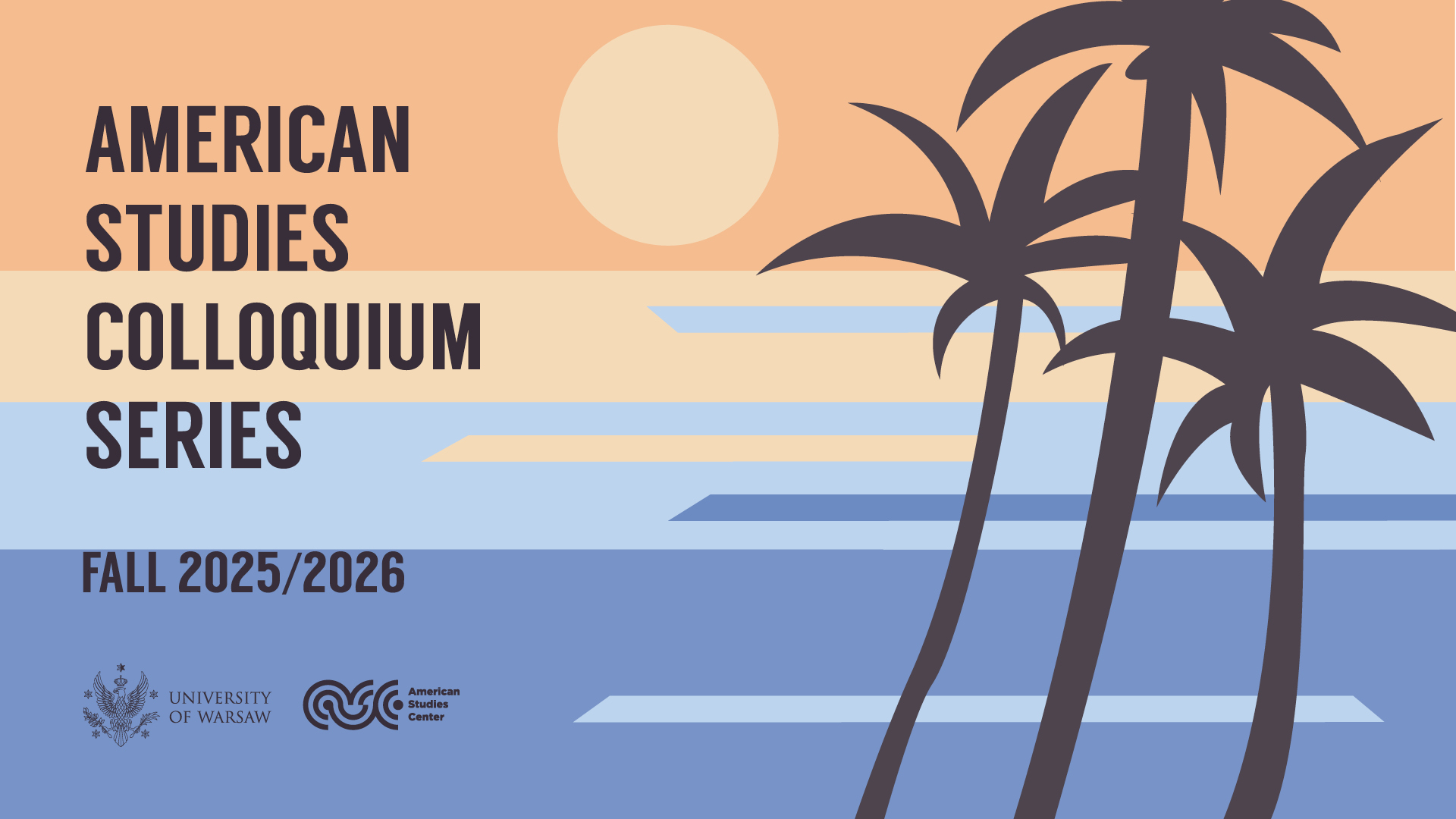Ośrodek Studiów Amerykańskich i Sekcja Studencka Pracowni Gender/Sexuality zapraszają na spotkanie zatytułowane
Postfeminizm, Bimbo Feminizm i Film ,,Barbie”. O Feministycznych Praktykach w Erze Neoliberalizmu Kulturowego
Poniedziałek, 26 Lutego 2024
18:00
Dobra 55, sala 0.236

Drogie Osoby Studenckie!
Zapraszamy na kolejne wydarzenie Sekcji Studenckiej Pracowni Gender/Sexuality!
Na najbliższym spotkaniu przyjrzymy się różnym rodzajom praktyk feministycznych we współczesnej erze neoliberlizmu kulturowego.
Sięgniemy do zbioru esejów krytycznych pod redakcją Yvonne Tasker i Diane Negry „Interrogating Postfeminism: Gender and the Politics of Popular Culture”, aby najpierw opisać współczesne uwarunkowania kulturowo-polityczne tworzące różne kategorie feminizmu neoliberalnego. Porozmawiamy o “kulturze bimbo” oraz o tym, jak można ją interpretować przez pryzmat intersekcjonalnych teorii feministycznych. Powrócimy na chwilę do korzeni zjawiska, czyli do popkultury początku lat dwutysięcznych oraz zajrzymy do akademickich analiz, jak i jego popularno-naukowego odbioru. W kolejnej
części zostanie przedstawiona krytyczna analiza filmu, który momentalnie stał się bimbowym klasykiem, czyli oczywiście produkcji „Barbie” w reżyserii Grety Gerwig.
Na koniec nastąpi wspólna dyskusja, która będzie dla nas okazją, aby odpowiedzieć sobie m.in. na następujące pytania:
– Jak odróżniać (pseudo?)feministyczne trendy od praktyk prawdziwie feministycznych?
– Czy indywidualne wybory kobiet w późnym kapitaliźmie mogą być feministyczne? Co dzisiaj oznacza empowering kobiet?
– Czy warto postrzegać własną tożsamość przez pryzmat narzuconych przez kulturę definiujących kategorii? Czy odzyskiwanie mizoginistycznych terminów ma sens?
– Czy film „Barbie” zmienił coś we współczesnej popkulturze?
– Greta Gerwig i Margot Robbie bez nominacji do Oscarów vs. 300-procentowy wzrost poronień kobiet w Palestynie – dlaczego media głównego obiegu poruszają problemy kobiet tylko tych białych i bogatych?
Literatura podstawowa:
– Fragmenty „Interrogating Postfeminism: Gender and the Politics of Popular Culture”: cały wstęp „Introduction: Feminist Politics and Postfeminist Culture” str.1-22, kilka stron z pierwszego rozdziału „Postfeminism and Popular Culture: Bridget Jones and the New Gender Regime” str. 34-38;
– Publikacja Neşe Öztimur „WOMEN AS STRATEGIC AGENTS OF GLOBAL CAPITALISM.” z International Review of Modern Sociology 33;
– Tekst Agnieszki Graff „ »Barbie« – film rozkosznie zabawny, błyskotliwie inteligentny i bezwstydnie cyniczny” dostępny na OKO.press.
Teksty są dostępne na naszym dysku.
Z przyjemnością informujemy, że po raz pierwszy przewidujemy transmisję online na Facebooku, dlatego serdecznie zapraszamy wszystkie osoby pragnące wziąć udział w spotkaniu . Nie trzeba mieć koniecznie statusu studenckiego ani zapisywać się. Polecamy włączyć sobie powiadomienia w wydarzeniu, aby być na bieżąco z dodatkowymi kontekstami, które będziemy publikować oraz przypominajką o rozpoczętej transmisji.
Prowadzi: Oliwia Kulikowska
Widzimy się 26 lutego o godz. 18.00 na Dobrej lub online!



